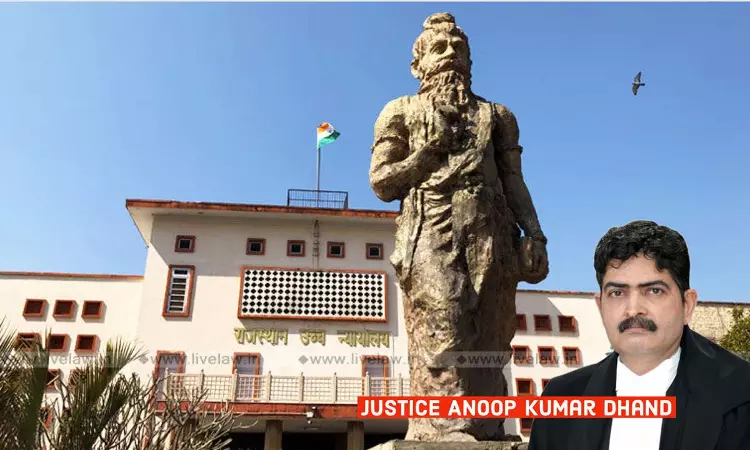- Home
- /
- High Courts
- /
- Rajasthan High Court
- /
- Rajasthan High Court Pulls Up...
Rajasthan High Court Pulls Up State, Election Commission Over Delay In Conducting Municipal Polls
LIVELAW NEWS NETWORK
22 Sept 2025 12:53 PM IST
The Rajasthan High Court has criticised the State Election Commission and the State Government for failing to conduct timely elections to urban local bodies, holding that such delay undermines the constitutional mandate of democracy.Justice Anoop Kumar Dhand, while dismissing a batch of writ petitions filed by former Sarpanchs who were made Chairpersons of Municipalities after the merger of...
The Rajasthan High Court has criticised the State Election Commission and the State Government for failing to conduct timely elections to urban local bodies, holding that such delay undermines the constitutional mandate of democracy.
Justice Anoop Kumar Dhand, while dismissing a batch of writ petitions filed by former Sarpanchs who were made Chairpersons of Municipalities after the merger of their Panchayats, observed that the authorities failed in fulfilling their duty to hold municipal elections before the expiry of the five-year term.
The Bench noted that Article 243U of the Constitution and Section 7 of the Rajasthan Municipalities Act, 2009 mandate that every Municipality has a fixed tenure of five years, and elections must be held before the expiry of this term or within six months of dissolution.
Justice Dhand remarked: “SDOs are continuing to function as 'Administrator' of these Municipalities, which is in clear violation of the constitutional mandate. There is no provision either under the Constitution of India or under the Act of 2009, that permits Municipalities to function without elected representatives beyond the stipulated five-year term. But, despite this, the SDOs continue to perform as 'Administrators', in utter violation of the principles of democratic governance."
He further stressed that democracy at the grassroots cannot be allowed to be substituted by bureaucratic administration, as happened when Sub-Divisional Officers were appointed Administrators after expiry of the petitioners' tenure.
The petitioners were elected Sarpanchs in 2020. In 2021, their Gram Panchayats were merged into Municipal Boards, and they were designated as Chairpersons.
After completing their five-year term in January 2025, the State Government issued a notification dated 22.01.2025, appointing SDOs as Administrators of the Municipalities. The petitioners challenged this, alleging discrimination, since Panchayat Sarpanchs were allowed to continue as Administrators of Gram Panchayats under a separate notification dated 16.01.2025.
The Court upheld the Government's stand that under the Municipalities Act, 2009, only an “officer” can be appointed as Administrator, unlike the Panchayati Raj Act, 1994, which allows broader discretion.
The plea of discrimination was rejected, with the Court holding that Panchayats and Municipalities are distinct constitutional entities governed by different statutes.
While ruling against the petitioners, the Court emphasised that the State Government and the Election Commission must be held accountable for failing to discharge their obligations. The order underlined that timely elections are the essence of constitutional democracy, and any deviation erodes the faith of the people in local self-governance.
The petitions were thus held to be devoid of merit and dismissed.
Case title: Smt. Urmila Agarwal v. State of Rajasthan



